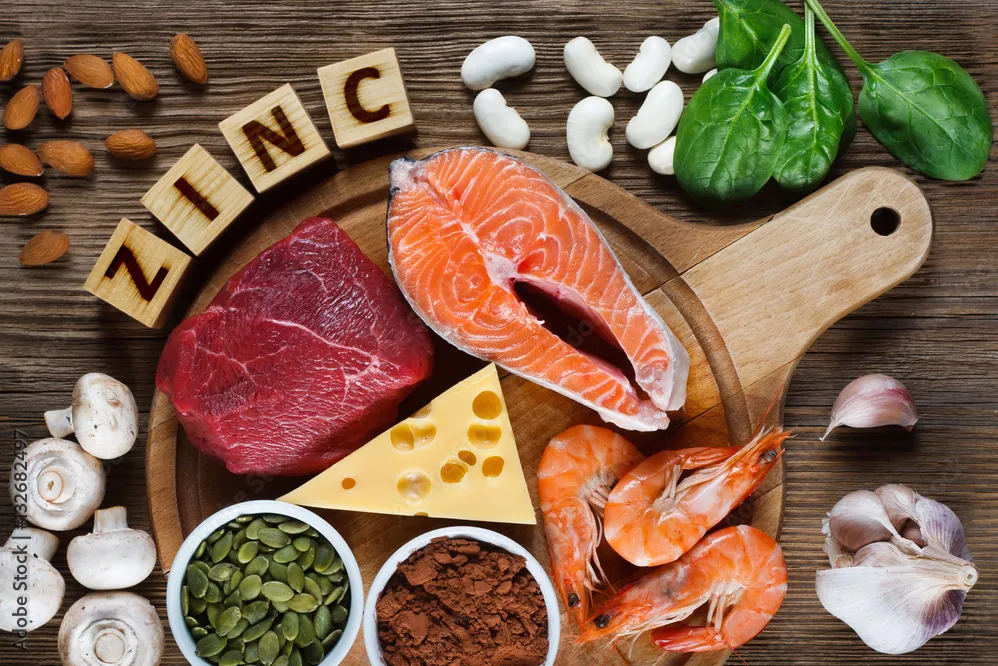
Zinc: What Is It And Why You Need It
In this article
What is Zinc?
Zinc is a trace mineral, meaning your body only needs it in small amounts; but don’t underestimate how hard these small amounts work in the body. Zinc is needed for many enzymes to work and since your body can’t make it or store it, you have to get it from your diet.
Why do we need zinc?
Zinc and Immune Health
Zinc helps the immune system by supporting your skin’s role as a barrier that protects you from infection to supporting the development and function of immune cells. Studies have shown that being low in zinc also affects the development of your immune system.2
Zinc and Skin Health
Your skin is in a continual state of renewal and this places a high demand on zinc-based enzymes and proteins that are involved in skin integrity and skin healing.3
Zinc and Male Reproductive Health
Studies have shown Zinc plays a significant role in the male reproductive system and is involved in sperm function.2
How much Zinc do you need?
For most Australians, the recommended daily intake (RDI) of zinc varies depending on age and gender. Adult men need about 14 mg per day, while adult women need approximately 8 mg per day. Teenage boys need 13 mg per day and teenage girls need about 7 mg per day.1 If you’re pregnant or breastfeeding speak to your healthcare practitioner about how much zinc you need.
Where can you find zinc in your diet?
The good news is zinc is widely available in many common foods. Some of the best sources of zinc include:5,6
- Seafood – Oysters contain more zinc per serving than any other food.
- Beef – Beef contributes to 20% of zinc intake in western diets.
- Eggs and Dairy
- Plant foods – Beans, nuts and whole grains contain zinc. The bioavailability of zinc from these foods is lower than that from animal foods and including a mix of both where suitable will help with zinc absorption.
Do You Need Zinc Supplements?
Most people meet their needs for zinc through diet alone, but certain groups may benefit from zinc supplementation. Vegetarians, pregnant women, men wanting support with reproductive system health or those struggling to get enough zinc in their diet may benefit from supplements. Speak to your healthcare practitioner before taking supplements.
Zinc may not be as well-known as other key nutrients, but its importance to your overall health and wellbeing cannot be overstated. From maintaining your immune system to supporting enzymes in the body, zinc plays a key role in keeping you healthy. Eating a varied diet containing zinc-rich foods can help you get the zinc your body needs to help maintain healthy immune system function and support healthy skin.
1 National Health and Medical Research Council (2021). Zinc | Eat For Health. [online] Eatforhealth.gov.au. Available at: https://www.eatforhealth.gov.au/nutrient-reference-values/nutrients/zinc.
2 Shankar, A.H. and Prasad, A.S. (1998). Zinc and immune function: the biological basis of altered resistance to infection. The American Journal of Clinical Nutrition, 68(2), pp.447S463S. doi: https://doi.org/10.1093/ajcn/68.2.447s.
3 Schwartz, J.R., Marsh, R.G. and Draelos, Z.D. (2006). Zinc and Skin Health: Overview of Physiology and Pharmacology. Dermatologic Surgery, 31, pp.837–847. doi: https://doi.org/10.1111/j.1524-4725.2005.31729.
4 Allouche-Fitoussi, D. and Breitbart, H. (2020). The Role of Zinc in Male Fertility. International Journal of Molecular Sciences, 21(20), p.7796. doi: https://doi.org/10.3390/ijms21207796.
5 National Institutes of Health (2022). Office of Dietary Supplements – Zinc. [online] Nih.gov. Available at: https://ods.od.nih.gov/factsheets/Zinc-Consumer/.
6 National Institutes of Health (2022). Office of Dietary Supplements – Zinc. [online] Nih.gov. Available at: https://ods.od.nih.gov/factsheets/Zinc-HealthProfessional/.